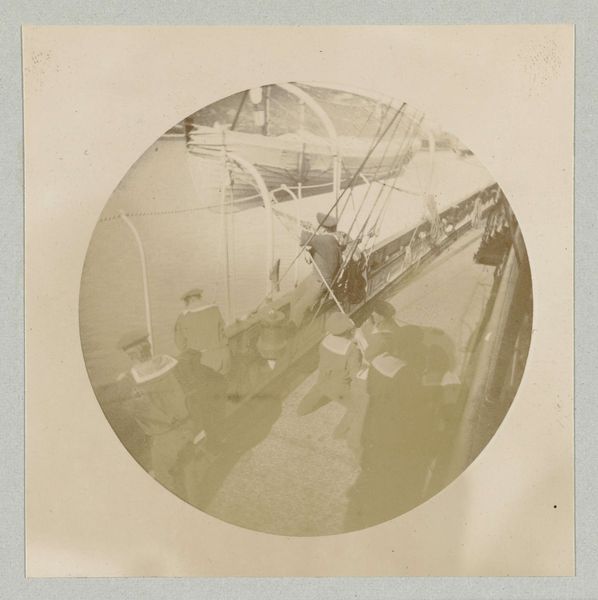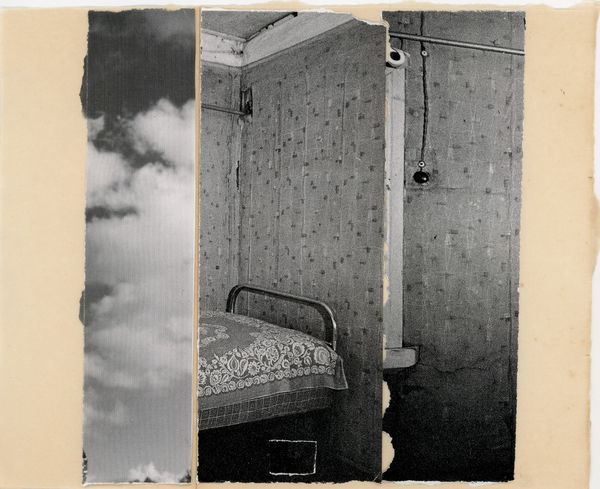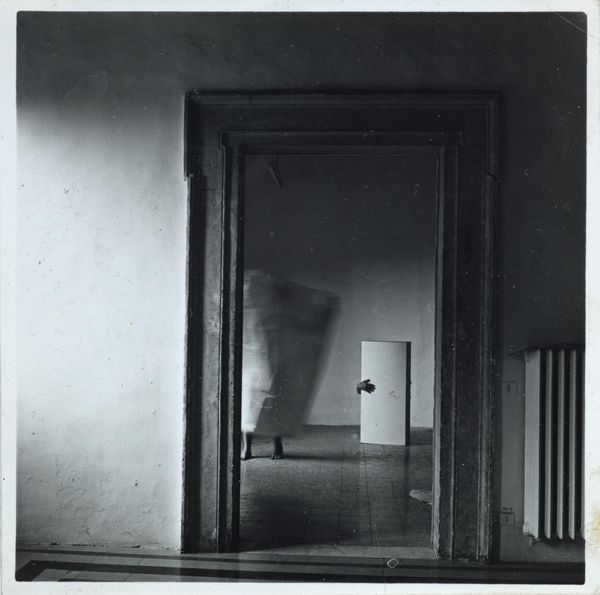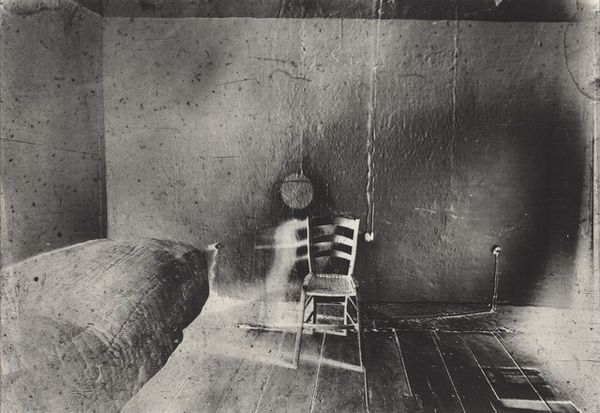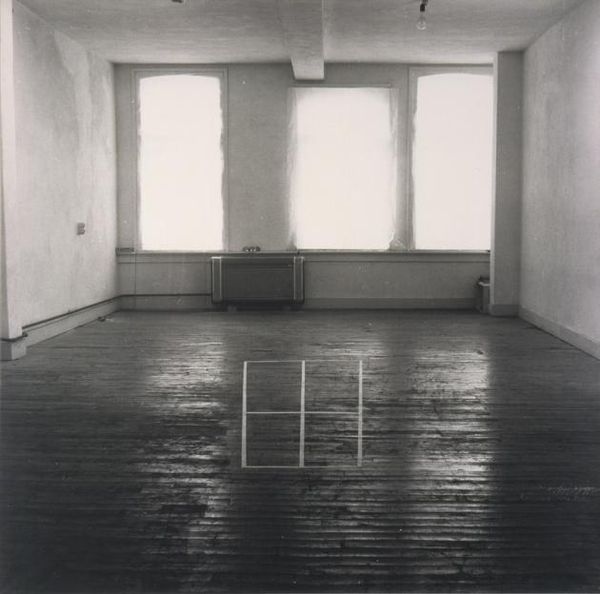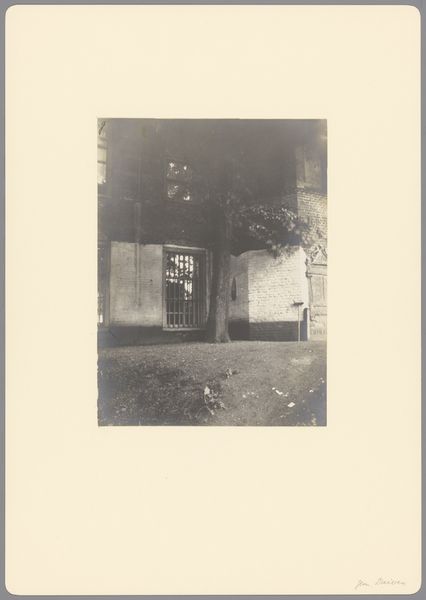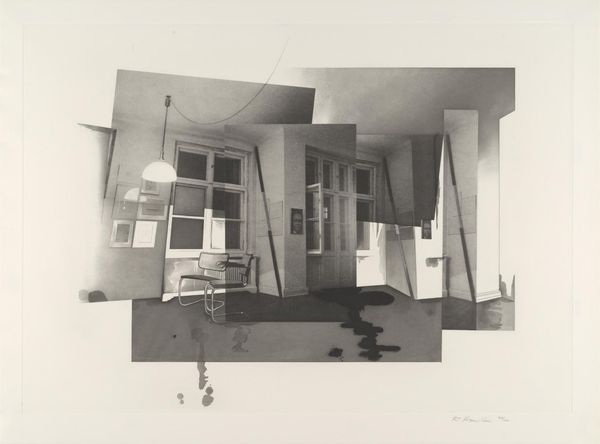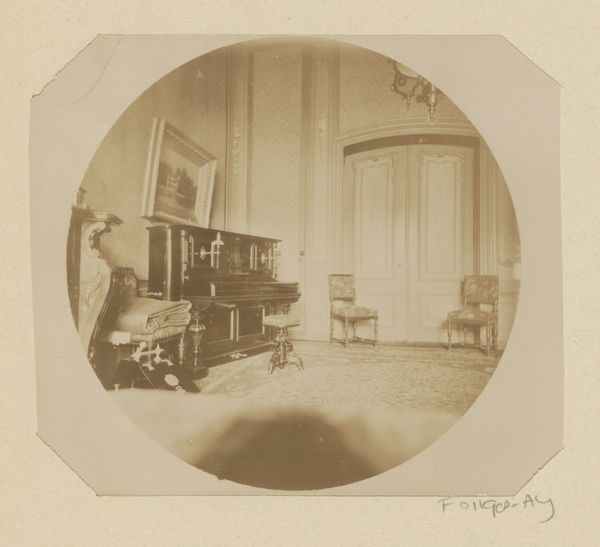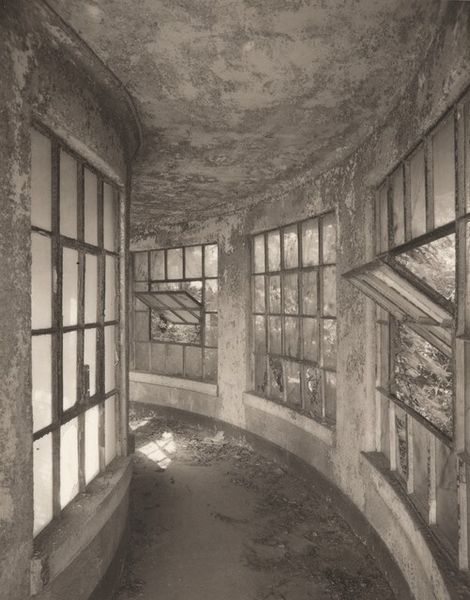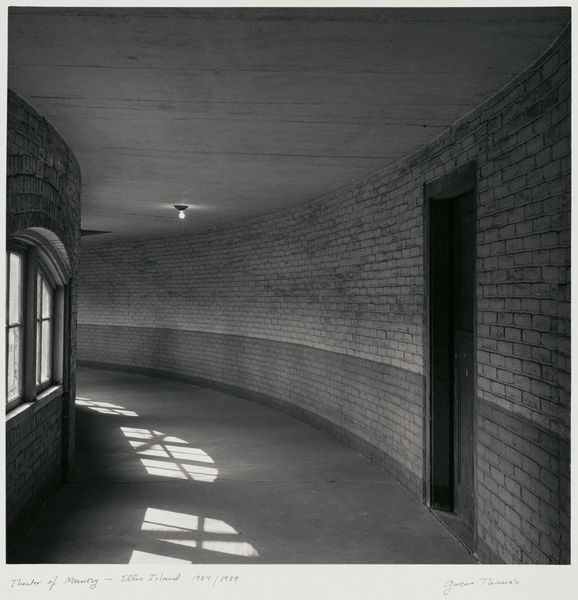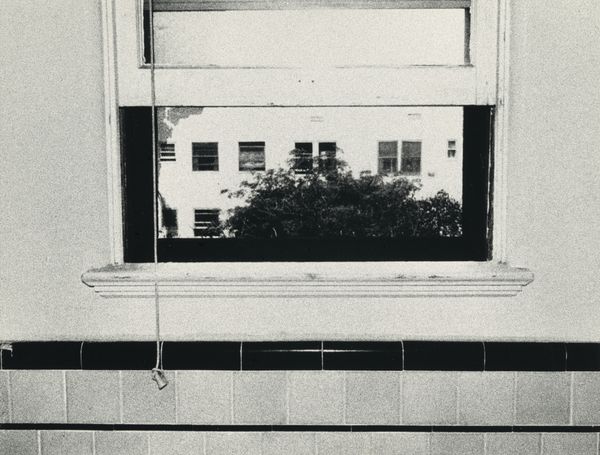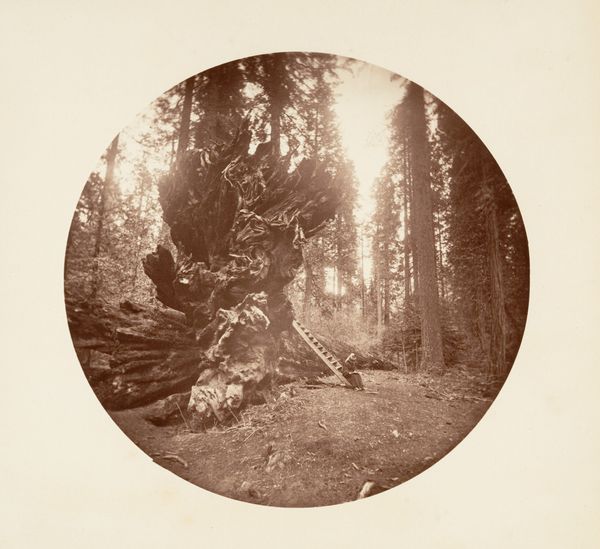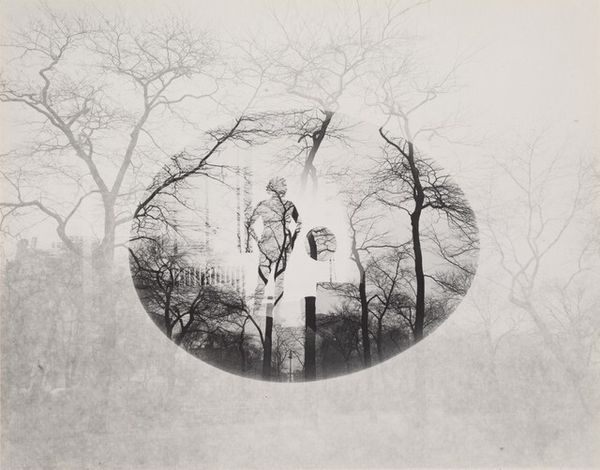
Interior of Pavilion Built on the Stump of the Tree, C. Grove 1876 - 1880
0:00
0:00
photography, gelatin-silver-print
#
portrait
#
16_19th-century
#
landscape
#
photography
#
historical photography
#
gelatin-silver-print
#
19th century
#
men
Dimensions: Image: 12.5 x 12.5 cm (4 15/16 x 4 15/16 in.), circular Album page: 24 x 25.1 cm (9 7/16 x 9 7/8 in.)
Copyright: Public Domain
Carleton Watkins made this photograph of the interior of a pavilion in California, sometime in the 19th century. The space is defined by the stump of a giant sequoia tree, a testament to the scale of nature and the ambition of human intervention. Watkins’ image speaks to a pivotal moment in American history, one that shaped institutional attitudes toward nature and the environment. The pavilion, built on the remains of a felled giant, encapsulates a narrative of exploitation and commodification. Look at the graffiti on the walls, these signatures are traces of those who sought to conquer nature. This contrasts sharply with the concurrent emergence of the American conservation movement. Figures like John Muir advocated for the preservation of wilderness, leading to the establishment of national parks. To fully grasp the image, we should delve into archival sources, exploring the economic drivers of logging, the cultural fascination with the monumental, and the evolving ethics of land use. This allows us to see art as contingent on social and institutional contexts.
Comments
No comments
Be the first to comment and join the conversation on the ultimate creative platform.
